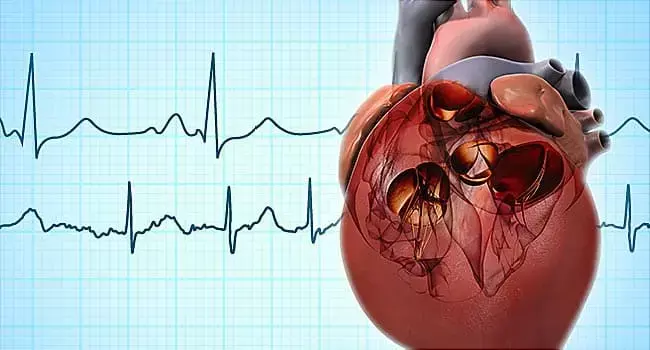- Home
- Medical news & Guidelines
- Anesthesiology
- Cardiology and CTVS
- Critical Care
- Dentistry
- Dermatology
- Diabetes and Endocrinology
- ENT
- Gastroenterology
- Medicine
- Nephrology
- Neurology
- Obstretics-Gynaecology
- Oncology
- Ophthalmology
- Orthopaedics
- Pediatrics-Neonatology
- Psychiatry
- Pulmonology
- Radiology
- Surgery
- Urology
- Laboratory Medicine
- Diet
- Nursing
- Paramedical
- Physiotherapy
- Health news
- Fact Check
- Bone Health Fact Check
- Brain Health Fact Check
- Cancer Related Fact Check
- Child Care Fact Check
- Dental and oral health fact check
- Diabetes and metabolic health fact check
- Diet and Nutrition Fact Check
- Eye and ENT Care Fact Check
- Fitness fact check
- Gut health fact check
- Heart health fact check
- Kidney health fact check
- Medical education fact check
- Men's health fact check
- Respiratory fact check
- Skin and hair care fact check
- Vaccine and Immunization fact check
- Women's health fact check
- AYUSH
- State News
- Andaman and Nicobar Islands
- Andhra Pradesh
- Arunachal Pradesh
- Assam
- Bihar
- Chandigarh
- Chattisgarh
- Dadra and Nagar Haveli
- Daman and Diu
- Delhi
- Goa
- Gujarat
- Haryana
- Himachal Pradesh
- Jammu & Kashmir
- Jharkhand
- Karnataka
- Kerala
- Ladakh
- Lakshadweep
- Madhya Pradesh
- Maharashtra
- Manipur
- Meghalaya
- Mizoram
- Nagaland
- Odisha
- Puducherry
- Punjab
- Rajasthan
- Sikkim
- Tamil Nadu
- Telangana
- Tripura
- Uttar Pradesh
- Uttrakhand
- West Bengal
- Medical Education
- Industry
Postoperative atrial fibrillation is as likely to cause stroke as 'non-surgery' AF development: Study

USA: Postoperative atrial fibrillation (AF) after noncardiac surgery is tied to a similar risk of thromboembolism versus nonoperative AF, researchers report in a study published in Annals of Internal Medicine.
Previous studies have shown that postoperative AF following noncardiac surgery confers increased risks for transient ischemic attack (TIA) and ischemic stroke. However, there is no information on how outcomes for postoperative AF after noncardiac surgery compare with those for AF occurring outside of the operative setting.
Against the above background, Konstantinos C. Siontis, Department of Cardiovascular Medicine, Mayo Clinic, Rochester, Minnesota, and colleagues aimed to compare the risks for ischemic stroke or TIA and other outcomes in patients with postoperative AF versus those with incident AF not associated with surgery in a cohort study.
The study included patients with incident atrial fibrillation between 2000 and 2013. They were categorized as having AF occurring within 30 days of a noncardiac surgery (postoperative AF) or having AF unrelated to surgery (nonoperative AF).
The findings of the study were as follows:
- Of 4231 patients with incident AF, 13% had postoperative AF as their first-ever documented AF presentation.
- Over a mean follow-up of 6.3 years, 486 patients had an ischemic stroke or TIA and 2462 had subsequent AF; a total of 2565 deaths occurred.
- The risk for stroke or TIA was similar between those with postoperative AF and nonoperative AF (absolute risk difference [ARD] at 5 years, 0.1%; hazard ratio [HR], 1.01).
- A lower risk for subsequent AF was seen for patients with postoperative AF (ARD at 5 years, −13.4%; HR, 0.68).
- No difference was seen for cardiovascular death or all-cause death between patients with postoperative AF and nonoperative AF.
The study is limited by the fact that the population consisted predominantly of White patients so caution should be used when extrapolating the results to more racially diverse populations.
The researchers conclude, "Our findings have potentially important implications for the early postsurgical and subsequent management of postoperative AF."
Reference:
Siontis KC, Gersh BJ, Weston SA, Jiang R, Roger VL, Noseworthy PA, Chamberlain AM. Associations of Atrial Fibrillation After Noncardiac Surgery With Stroke, Subsequent Arrhythmia, and Death : A Cohort Study. Ann Intern Med. 2022 Jul 26. doi: 10.7326/M22-0434. Epub ahead of print. PMID: 35878404.
Dr Kamal Kant Kohli-MBBS, DTCD- a chest specialist with more than 30 years of practice and a flair for writing clinical articles, Dr Kamal Kant Kohli joined Medical Dialogues as a Chief Editor of Medical News. Besides writing articles, as an editor, he proofreads and verifies all the medical content published on Medical Dialogues including those coming from journals, studies,medical conferences,guidelines etc. Email: drkohli@medicaldialogues.in. Contact no. 011-43720751


